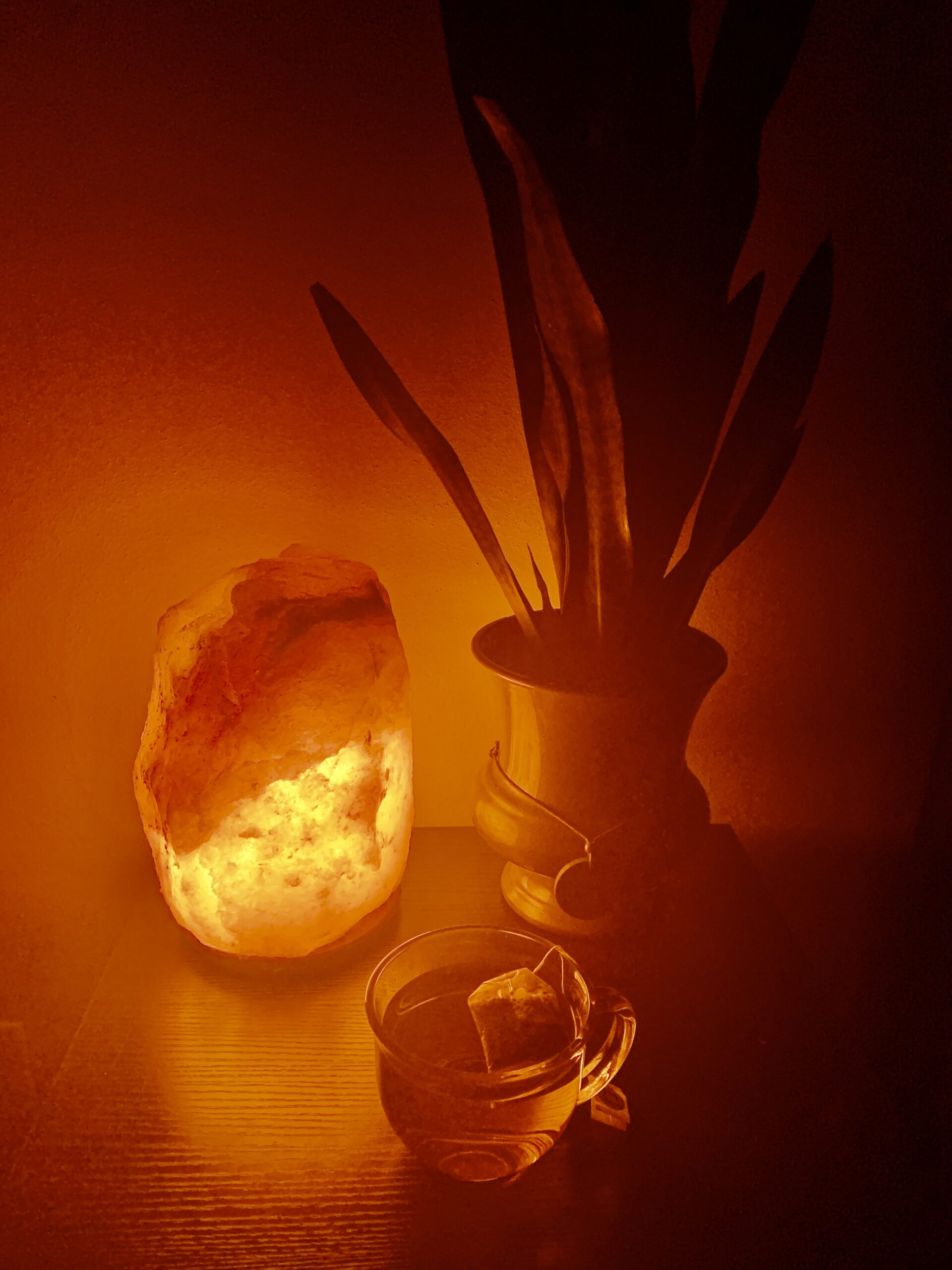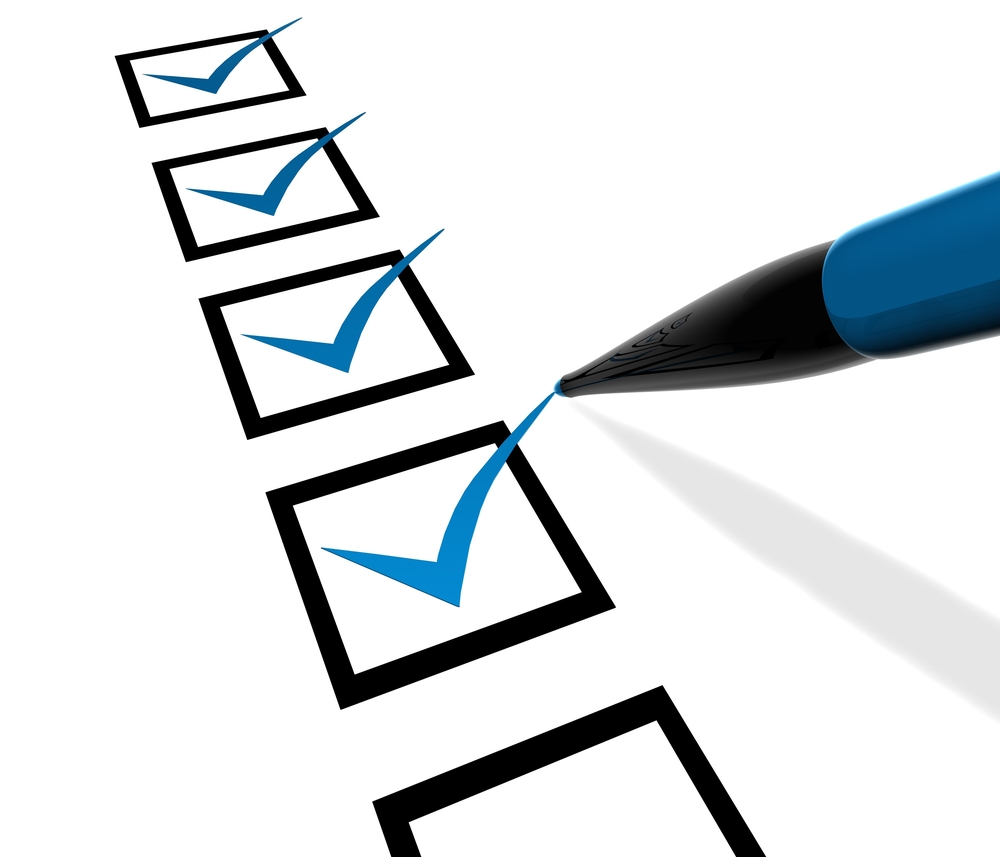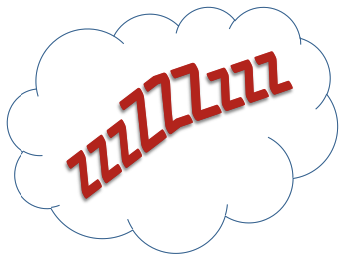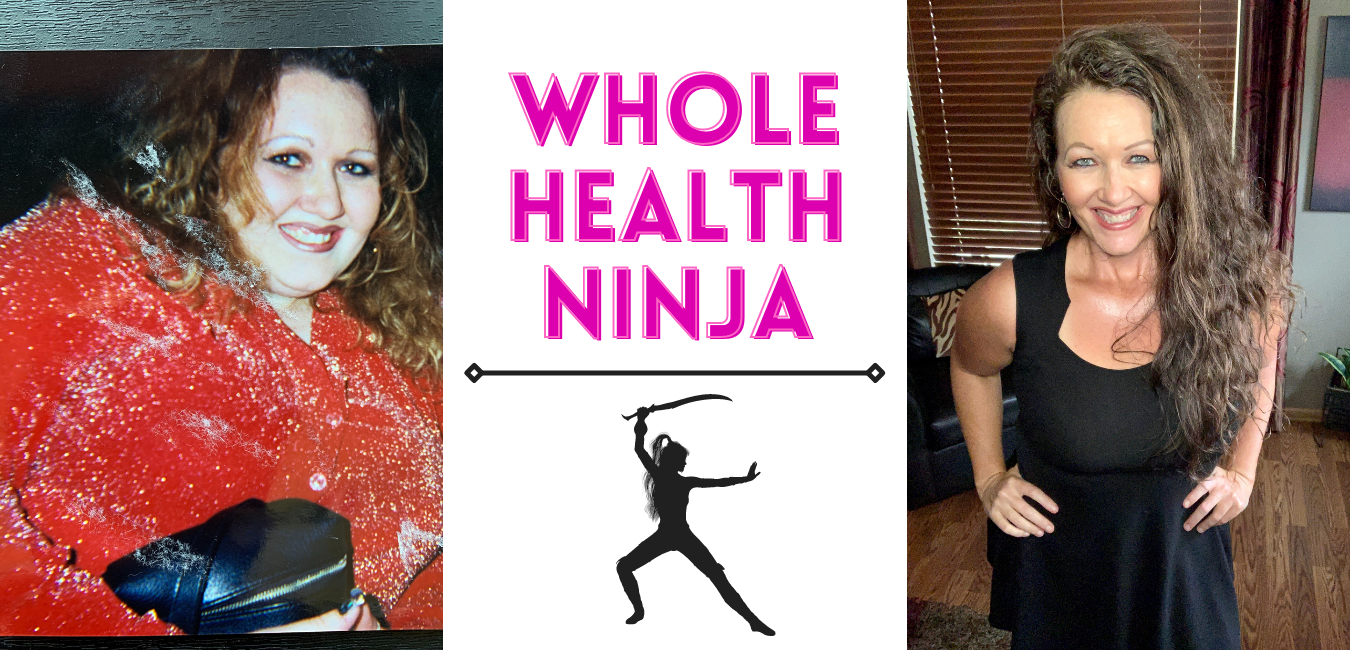Sleep is extremely important for your overall health and well-being. It’s critical for detoxing your body, strengthening your immune system and helping prevent loads of health issues.
So what do you do when you’re having problems sleeping?
Don’t reach for sleeping pills that sometimes work, but always come with negative side effects. Try these ninja tricks for getting a good night’s sleep instead!
Start by Creating a Sleep Sanctuary

Reserve your bed for sleeping. Besides sleeping, there’s only one other activity that’s ideal for your bed. (This is a PG blog, so I won’t get into the details – wink, wink.) Once you get in the habit of using your bed for watching TV, doing work or projects, the connection your mind makes between your bed and sleep is weakened. Avoid using your bed for any activity other than sleeping…and that “grown-up” thing.
Set your bedroom up for complete darkness. Even the tiniest bit of light in your bedroom can disrupt your internal clock, and the production of hormones and neurotransmitters like melatonin and serotonin that are critical for quality sleep. That’s because light signals your brain to wake up and starts preparing your body for action. This means even the smallest glow from an alarm clock or a nightlight can interfere with your sleep.
What’s the solution?
Get rid of nightlights in your bedroom. Cover up your alarm clock. Cover your windows with blackout shades or curtains. Refrain from turning on any light at all during the night, even when getting up to use the bathroom (as long as you can do so safely without light).
Keep your bedroom cool. Studies show the optimal room temperature for sleep is between 60 to 68 degrees F. When you sleep, your body’s internal temperature drops to its lowest level…usually about 4 hours after you fall asleep. Scientists have concluded that a cooler bedroom is most conducive to sleep, because it mimics your body’s natural temperature drop and reinforces your body’s natural instinct to sleep.
Disconnect your Wi-Fi and unplug all electronic devices in your bedroom (or keep them at least 3 feet away from your bed). This will help rid the direct area around you of disruptive electro-magnetic fields (EMFs) caused by electronic devices and Wi-Fi signals. It will also prevent you from obsessing over the time on a clock if you wake up and can’t fall back asleep right away.
Ditch loud and unpleasant alarm sounds. It is very stressful on your body to be suddenly jolted awake by a loud or unpleasant noise. Invest in an alarm clock that has pleasant sound options, or use your cell phone (placed at least 3 feet away) and select an enjoyable ringtone.
Invest in Himalayan salt lamps to freshen the air and release negative ions in your home. Confession: I am obsessed with Himalayan salt lamps! I have several in my home. I swear by their healing effects, which include improved air quality that promotes relaxation and better sleep.
It is best to keep the lamps on 24/7 for maximum effect, except for those that are in your bedroom. Those should be turned off before you go to bed to avoid sleep disruptions caused by light.
Click HERE to learn more about the benefits of Himalayan salt lamps.
Use an essential oil diffuser to put moisture in the air and release essential oils that naturally enhance sleep quality. Confession #2: I am obsessed with essential oils and swear by their therapeutic effects, including their ability to improve sleep quality. When you diffuse essential oils into the air using a cool water diffuser, you also help hydrate the air around you making it easier to breathe while you sleep.
The most beneficial essential oils to diffuse for sleep quality are lavender, vetiver, roman chamomile, ylang ylang, bergamot, sandalwood, marjoram and cedarwood. Or, you can buy pre-blended essential oil synergies that are formulated specifically for sleep.
My go-to brand of essential oils is Plant Therapy. Their quality is exceptional, their prices are excellent (plus they have great sales) and they offer FREE shipping and returns on all orders. Plant Therapy also offers pre-made essential oil blends that are specifically formulated for sleep.
If you’re in the market for an essential oil diffuser, there are loads to choose from here on amazon.
Put plants in your bedroom. Houseplants will naturally improve the air quality in your bedroom, plus plants are relaxing and nice to look at. If you’re like me and have the exact opposite of a green thumb, I recommend getting hard-to-kill houseplants like snake plants (Sansevieria), dracaenas, ferns, palms or a peace lily.
Follow a Consistent Bedtime Routine That Encourages Sleep

Have a consistent sleep schedule. Do your best to go to bed at the same time every night, and set your alarm for the same time every morning. This will help your body get into a solid sleep rhythm. Think of your sleep schedule just like a work schedule…it’s somewhere you must be for 7-8 hours a day to sustain your life.
Give yourself a dose of magnesium. Magnesium is often referred to as the “relaxation mineral.” It’s estimated that at lease 70% of adults are deficient in magnesium. This is problematic, because magnesium is involved in over 300 biochemical functions in your body like regulating your heartbeat.
Having a magnesium deficiency can cause a lot of negative symptoms, including muscle aches and spasms, poor digestion, anxiety and you guessed it….trouble sleeping!
All of the natural doctors and sleep experts I’ve worked with and study highly recommend taking a magnesium supplement. There are 3 common methods for magnesium supplementation, and I personally use all of them:
Oral Ingestion with Magnesium Malate, Citrate & Glycinate). There are 2 supplements I recommend for oral ingestion. The first is a full spectrum magnesium formulation from a naturopathic doctor (Dr. Stephen Cabral) I know and trust – click HERE to check it out.
The other is a powder of pure magnesium citrate known as Natural Calm, which you simply mix into water or any other beverage and drink it. Each night, I mix 1 teaspoon into a small glass of water and chug it before bedtime. Not only does Natural Calm help with sleep, it’s also great for supporting regular bowel movements.
Topical Application with Magnesium Chloride. This comes in the form of a liquid spray, which you apply to your skin. I recommend spritzing it on your underams and on the bottoms of your feet right before bed. This spray also works as a deodorizer, which is an added benefit! You can find some options here.
Soaking in an epsom salt bath (Magnesium Sulfate). Yes, epsom salt is pure magnesium sulfate. Simply add 1-2 cups to your bath water, and it will be absorbed through your skin.
Magnesium has been CRITICAL in improving my sleep quality, as well as managing anxiety!
Enjoy a cup of herbal tea. There are several herbs known to induce sleep naturally. You can easily capitalize on the benefits of these herbs by drinking them as a warm cup of tea. These herbs include chamomile, lemon balm, valerian root, passionflower, lavender, hops and magnolia bark.
My two favorite brands that offer high-quality organic tea blends are Traditional Medicinals and Yogi.
Avoid bedtime snacks, especially processed foods that spike blood sugar. Processed foods raise blood sugar, which will delay your ability to fall asleep. Later, when your blood sugar drops, you may wake up and not be able to get back to sleep. Plus, if you eat close to bedtime, your body will be busy digesting food which can affect sleep quality.
If you must eat something close to bedtime, make sure it’s a whole food that won’t spike your blood sugar.
Ditch screen time 2 hours before bed. TVs, smart phones, tablets and computers kick out a blue spectrum of light that triggers your body to produce more “daytime” hormones (like cortisol). This tells your body it’s not time for sleep, shuts down melatonin production and will make it a lot harder to get quality Z’s.
If you absolutely must have screen time shortly before going to bed, you can invest in glasses like these that block blue light.
Take a warm bath or shower. Your body temperature is raised when you’re in a warm bath or shower, and then it falls when you get out. This temperature drop signals your body that it’s time for bed. By adding some epsom salt (pure magnesium sulfate) to your bath, you’ll take the sleep-inducing effects to the next level!
Go to the bathroom right before getting in bed. This reduces the chance that you’ll have to wake up to go in the middle of the night.
Wear socks to bed. Feet often feel cold before the rest of the body, because they have the poorest circulation. Studies show that wearing socks to bed reduces the chance of waking up during the night.
Choose a relaxing activity to engage in right before going to sleep. If you’re someone who can’t fall asleep quickly after getting in bed, try one of these relaxing activities to lull yourself into a sweet slumber:
- Listen to relaxing music.
- Read something spiritual or uplifting. Avoid reading anything that will stimulate your mind or make you not want to stop reading, like a suspense or mystery book.
- Do a brain dump by journalling all your thoughts onto paper. This can help stop your mind from racing as you drift off to sleep.
- Take several deep breaths, breathing in through your nose and out through your mouth.
- If you believe in a higher power and like to pray, this is the perfect time to express your love and gratitude, and ask for any help you need.
Wear an eye mask to block out light. Wearing an eye mask to bed will ensure you don’t have any exposure to light when you’re sleeping, which reduces your chances of waking up. I highly recommend only using sleep masks that are made of pure natural silk like these.
Make Lifestyle Changes That Increase Sleep Quality

Exercise regularly. Exercising for at least 30 minutes a day improves sleep quality. However, don’t exercise too close to bedtime or it may keep you awake. The best time to exercise is in the morning, if you can manage it.
Follow a healthy diet. A diet should be a healthy way of eating that you follow for a lifetime, not something you’re “on” and only follow temporarily. Focus on eating whole foods in their natural state, and preferably organic.
Avoid alcohol. Although alcohol may make you drowsy, the effect is short-lived and you will often wake up several hours later, unable to fall back asleep. Plus, alcohol keeps you from entering the deeper stages of sleep where your body does most of its healing.
Avoid caffeine after the noon hour. It’s no secret that caffeine is a stimulant that can make you feel more awake. To ensure the best sleep possible, avoid having any caffeine after noon each day.
Get grounded. The simple act of standing outside on grass, soil or sand at the beach reduces inflammation in your body, helping you to relax and detox. This “grounding” effect is the result of the earth releasing negatively-charged antioxidant electrons into your body that neutralize the positively-charged free radicals floating around in your system.
Try this grounding technique (also referred to as “earthing”) for at least 10 minutes a day.
If you’re like me and live in an area where the ground is freezing or covered by snow several months out of the year, you can invest in a grounding a mat to use inside your home. You can find options here on amazon.
Get rid of excess weight. Being overweight increases your risk of sleep apnea (interruptions in your breathing), which can seriously impair your sleep. Be sure to sign up for email list using the box below, so you receive my weekly tips on living a healthy lifestyle.
Cheers to a good night’s sleep!
With love and gratitude,
Kandi
DISCLOSURE: Any links above may be affiliate links, which means I earn a small commission – at no additional cost to you – if you purchase a product through them. (Click here to view my full Disclaimer & Disclosure statement.) This helps me continue providing FREE information to help you become a Whole Health Ninja. Thanks for your support!
